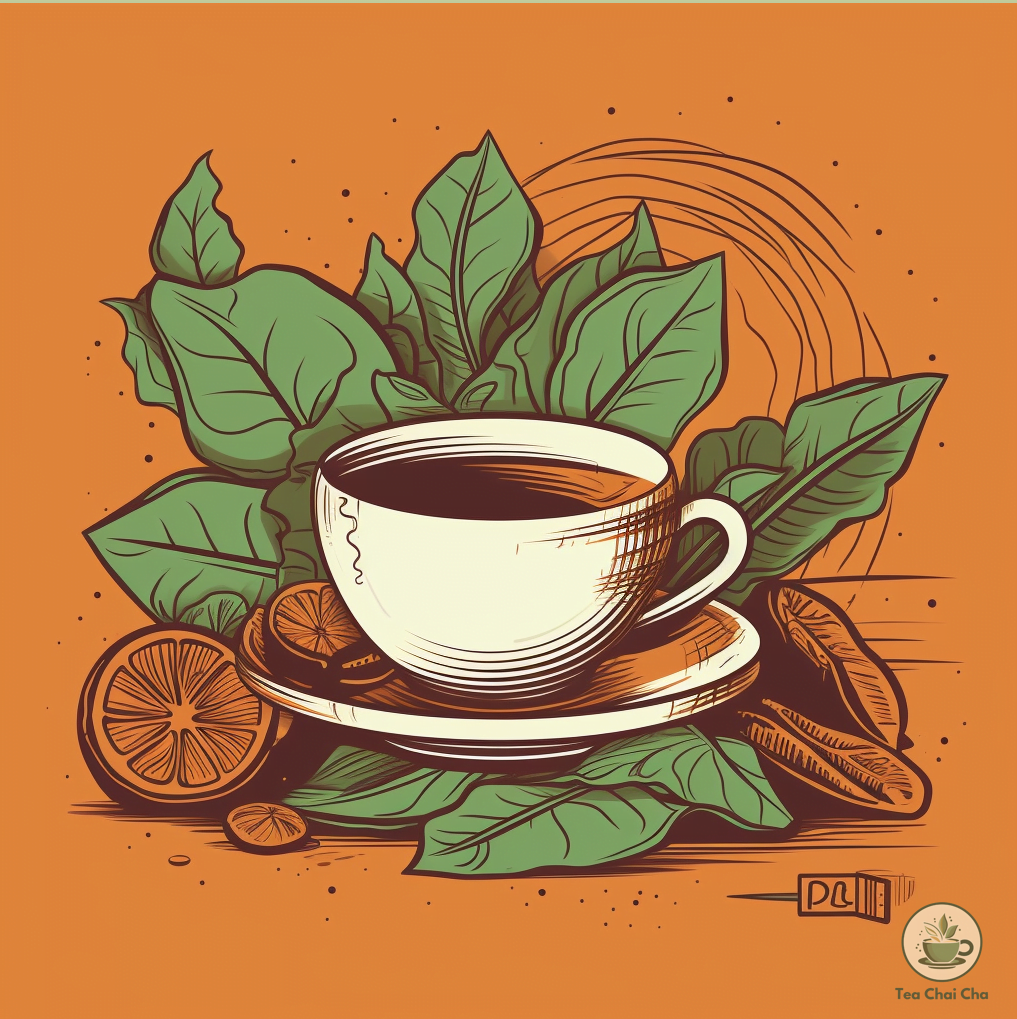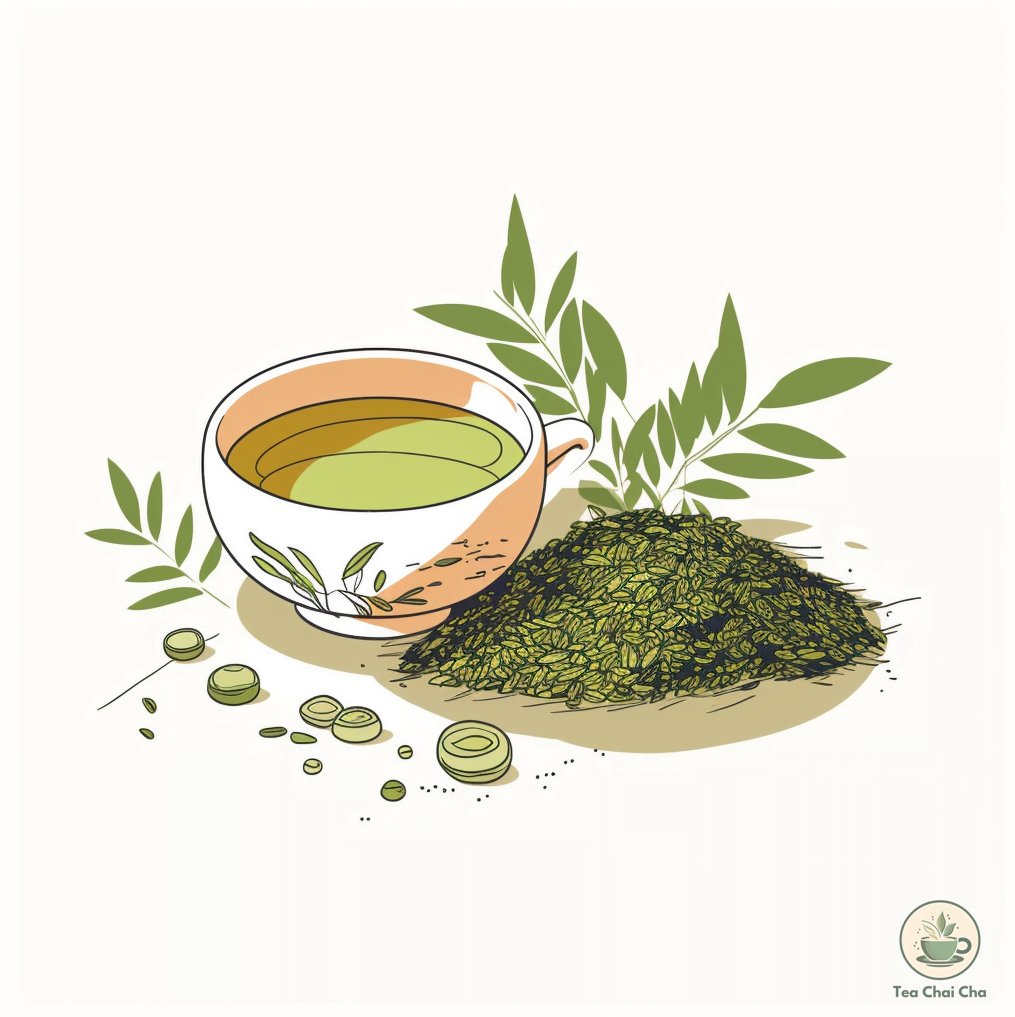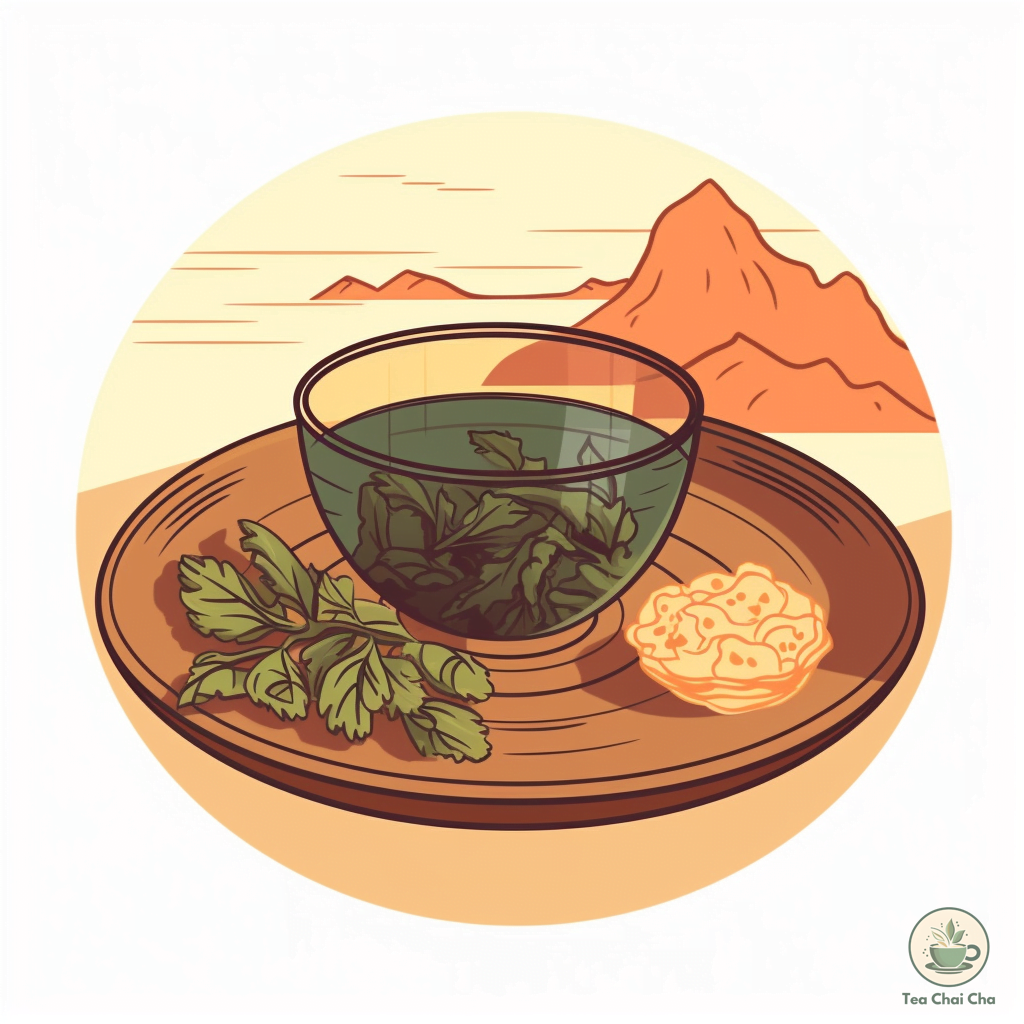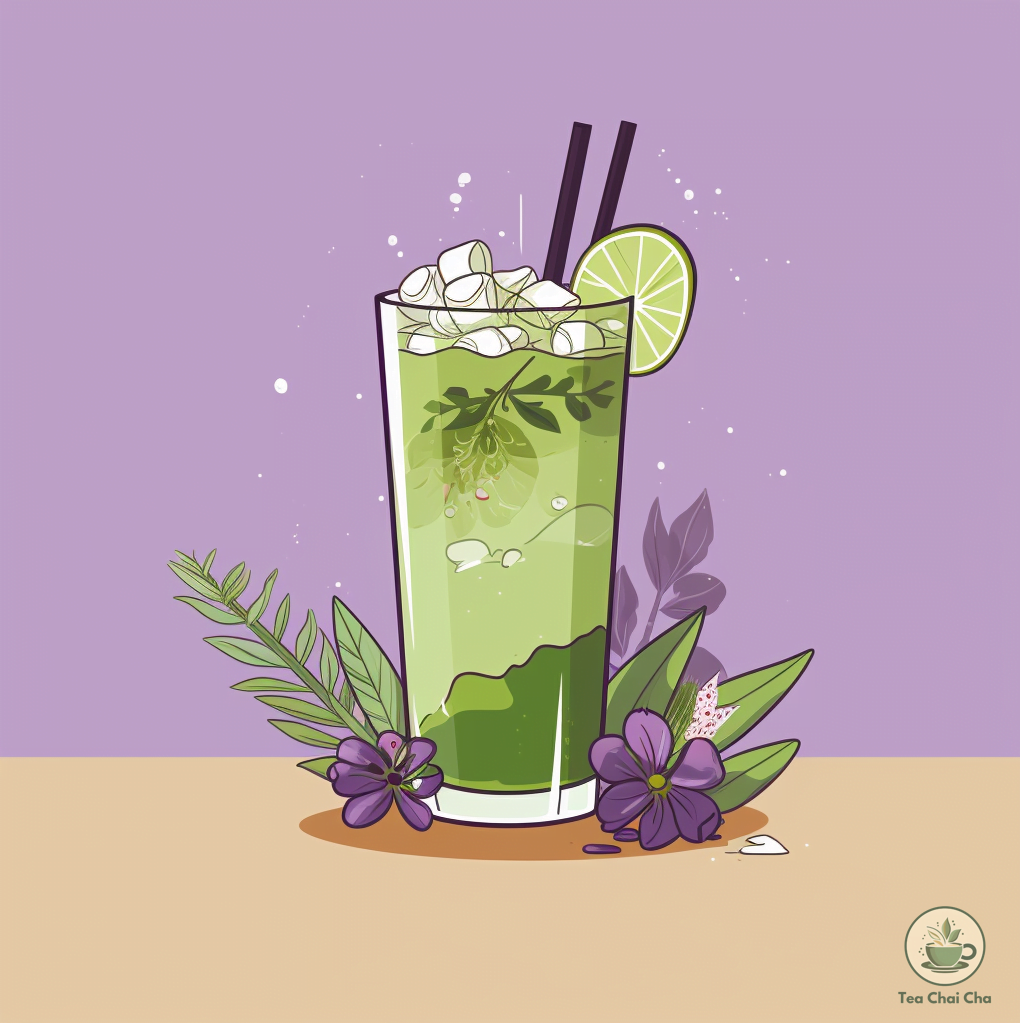Are you constantly battling sleepiness in the morning or struggling with fatigue during the day?
Perhaps you’ve asked yourself: is there a tea that can give me the energy boost I need?
The answer is a resounding yes, but not all teas are created equal when it comes to their caffeine content.
On average, black tea generally has the most caffeine (14-70 mg caffeine per 8 oz serving).
In this post, I will talk about various types of highest caffeinated tea.
What is Caffeine?
Did you know that the caffeine in your tea comes from a natural stimulant found in the Camellia sinensis plant?
Let’s take a closer look.
Caffeine is a term we hear often, but what is it exactly?
It’s a natural stimulant found in various plants, including the Camellia sinensis plant from which all tea originates.
When consumed, it stimulates the brain and nervous system, helping you stay alert and ward off tiredness.
How Caffeine Content Varies in Different Teas
When you sip your favorite tea, do you ever wonder how much caffeine you’re consuming?
The caffeine content varies considerably among different types of tea.
Here’s a deeper dive into the fascinating world of caffeine and tea.
Tea Caffeine Content Chart
Here’s a general guideline:
- Black Tea: 14-70 mg per 8 oz cup
- Oolong Tea: 12-55 mg per 8 oz cup
- Green Tea: 24-45 mg per 8 oz cup
- White Tea: 6-25 mg per 8 oz cup
- Herbal Tea: Mostly caffeine-free
- Matcha: 30 mg per 1g serving and up to 70 mg per 8 oz cup
Please note that these are averages, and the actual caffeine content can vary depending on factors mentioned earlier.
Factors Influencing Caffeine Content in Tea
The caffeine content in your cuppa tea can be influenced by some real important factors.
Check these out:
1. Type of Tea
Now, not all teas are brewed equal.
The way those tea leaves are processed really plays a role in the caffeine game.
Take black tea, for example; it’s fully oxidized and packs a punch with more caffeine than that mellow white tea, which gets minimal processing vibes.
2. Age and Part of the Tea Leaf
Here’s the deal, young leaves and buds bring more to the caffeine party.
They’ve got that extra kick compared to their older leaf mates.
So, if you want that caffeine boost, watch out for the young ones!
3. Steeping Time and Temperature
The longer you let your tea steep and the hotter the water, the more caffeine gets into your brew.
But, here’s the trade-off: it might get a tad bitter.
4. Use of Tea Bags vs. Loose Tea
If you’re using those tea bags, they often got smaller tea bits or dust inside, giving them a larger surface area to release more caffeine.
But don’t forget the loose leaf gang; they got their own charm.
6 Teas with the Highest Caffeine
This is the moment you’ve been waiting for – let’s dive into the heart of our tea exploration!

1. Black Tea: Highest Caffeine Tea
Black Tea has that robust flavor and packs a real punch with its high caffeine content, making it the ultimate kick-start you’ve been craving.
It’s fully oxidized, giving it that dark color and a bold taste that’s hard to beat.
And guess what?
It’s known for having the most caffeine among all teas, clocking in at an average of 47 milligrams per cup!
No wonder it’s such a popular choice for those in need of an energy boost.
So, if you’re looking to hit the ground running in the morning, make black tea your new best bud!
It will be the secret weapon you’ll want to keep close to get that extra oomph to power through the day.
Also read – Black Tea and Caffeine

2. Green Tea
You need a little pick-me-up without that boldness that black tea brings? Say hello to green tea!
It’s got that delicate flavor and is known for being good for you.
It’s less oxidized than black tea, giving it a lighter taste and packing around 35 milligrams of caffeine per cup.
While it might not hit you as hard as black tea in the caffeine department, it’s still loved by loads of tea enthusiasts for its gentler vibe and the dope health benefits it brings, like being packed with antioxidants.
Also read – Green Tea and Caffeine

3. White Tea
Looking for a subtle, sweet flavor with a gentle lift? The answer may be in a cup of White Tea.
White tea is the least processed of all teas and has a caffeine content that reflects this gentleness, averaging around 28 milligrams per cup.
If you’re seeking a less intense caffeine boost and prefer a delicate, subtly sweet flavor, white tea could be the perfect brew for you.
Also read – White Tea and Caffeine

4. Oolong Tea
If you’re after a tea experience that’s all about finding that perfect balance, Oolong Tea is the real deal!
On average, you’re looking at around 37 milligrams of caffeine per cup – not too strong like black tea, not too mild like green tea – just right in the sweet spot!
So if you want a tea that’s totally groovy and hits that happy medium, Oolong is the name of the game!
Also Read – Oolong Tea and Caffeine
5. Pu-erh Tea
Pu-erh tea, straight from China, bringing you that earthy goodness with a caffeine kick that’ll have you buzzing at 31 milligrams per cup!
Pu-erh goes through some special fermentation process that gives it that bold, rich taste that’ll have your taste buds dancing with joy!
If you’re the adventurous type, this tea’s your ticket to flavor town, no doubt about it.

6. Matcha Tea
If you’re on the hunt for an epic caffeine kick wrapped in a seriously mind-blowing umami-rich flavor, get ready for a wild ride with Matcha tea!
We’re talking Matcha Tea, the real deal powdered green tea that packs a punch with a whopping 70 milligrams of caffeine per cup!
Yeah, you read that right, a serious caffeine jolt coming your way. And the secret behind this power move?
You’re not just sipping an infusion!
With matcha, you’re gulping down the whole tea leaf!
So, if you’re on a mission for the most electrifying tea experience, matcha is your one and only champion in this high-octane caffeine game!
How to Avoid Tea with the Highest Caffeine Content
If you want to keep an eye on your caffeine intake, you need to consider these factors while purchasing the right tea.
Step 1: Know Your Buzz Limits
How much caffeine you can handle depends on things like your weight, age, and how sensitive you are to the good old caffeine kick.
Take a minute to reflect on your daily caffeine intake and how it affects your vibe – does it give you those energy fireworks, or does it mess with your chill sleep patterns?
High Tolerance: Bring on the Powerhouse!
You’re a caffeine superhero, aren’t you?
If you need that massive energy boost, aim for teas that pack a punch, like bold black tea or invigorating matcha.
They’ll have you feeling like you can take on the world!
Moderate Tolerance: Keep It Balanced
You’re no stranger to caffeine, but you know how to keep it real.
For a milder yet satisfying lift, ride the wave of oolong or go green!
Low Tolerance: Easy Does It
If caffeine sends you into a spin or you’re a sunset tea sipper, no worries!
Play it cool with low-caffeine options like smooth white tea or the zen vibes of caffeine-free herbal blends.
Step 2: Consider Other Factors
Taste: Now, when it comes to picking the perfect tea, it is not all about that caffeine buzz but also flavors.
Some people, they crave that bold, punchy taste that black tea or pu-erh tea brings to the table.
But hey, don’t ignore the lighter, delicate vibes of green or white tea that others find so delightful!
Health Benefits: Tea is not just a drink; it’s like a potion with health perks!
Check it out – green tea packs a punch with antioxidants, helping your heart stay happy and your digestion running smooth.
So you better believe it’s more than just sipping on something tasty.
Time of Day: You don’t just drink any tea at any time. We have some unwritten tea time rules!
Mornings are all about that power-packed punch, so bring on the black tea!
But when the sun sets and it’s time to wind down, lighter teas or herbal infusions can be your jam.
Sip them slow and easy, and let the evening vibes take over.
Step 3: Know the Caffeine in Different Teas
Black Tea: If you need a serious caffeine jolt, go for the black tea.
It’s got the highest caffeine content, usually between 14-70 mg per 8 oz cup. That’s some proper energy right there!
Matcha Tea: Since you’re consuming the whole tea leaf, it’s packing around 70 mg of caffeine per cup.
That’s like a double shot of energy!
Oolong Tea: Now, here’s something in the middle of the road.
Oolong has a moderate amount of caffeine, about 37 mg per cup.
It’s a good balance if you don’t want to go too wild.
Green Tea: Feeling zen? Green tea’s got your back with around 35 mg of caffeine per cup.
It’s like a little peaceful boost to keep you going.
Pu-erh Tea: Pu-erh might be a bit lesser known, but it’s got a respectable 31 mg of caffeine per cup. Not too shabby, right?
White Tea: If you’re looking for something mellow, white tea’s got your number.
It’s got a lighter kick with an average of around 28 mg per cup.
Herbal Teas: Need a break from the buzz? Herbal teas are your best buds!
They’re caffeine-free, so you can sip ’em all day long without any worries.
By knowing how these teas stack up in the caffeine department, you can pick the perfect brew to match your energy needs.
Conclusion – Which Tea is Highest in Caffeine?
Let me sum it up for you in a simple way. The amount of caffeine varies depending on the type of tea you choose.
If you need a bit of a kick, go for black tea. It is the tea with most caffeine, around 14-70 milligrams in an 8-ounce cup!
Caffeine in Other Teas
Frequently Asked Questions (FAQs)
What tea has more caffeine than coffee?
Generally, coffee contains more caffeine than tea. However, Matcha, a type of powdered green tea, is an exception. When prepared traditionally, a cup of Matcha can contain caffeine levels comparable to a cup of coffee due to the consumption of the entire tea leaf.
What black tea has the most caffeine?
Among black teas, the real caffeine powerhouse comes from those with a whole lot of tips or buds, like Golden Monkey and Yunnan Gold. These teas pack a punch of caffeine that’ll rival your regular cup of joe.
How much caffeine is in tea vs coffee?
When it comes to your daily dose of caffeine, that 8-ounce (240-milliliter) cup of java packs a punch with an average of 95 to 200 milligrams of caffeine. An equal-sized cup of black tea is no slouch either, weighing in at around 14 to 70 milligrams. And, green tea is not far behind, scoring between 24 to 45 milligrams.
Which tea has no caffeine?
Herbal teas are the real deal when it comes to being caffeine-free, so you can sip them all day without worry! Check out classics like chamomile, peppermint, rooibos, and those yummy fruit-infused teas. And don’t forget about decaffeinated black and green teas—they try to be caffeine-free too.
Does green tea have caffeine?
Yes, it has caffeine in it, but not as much as its darker cousins, black and oolong teas. When you’re sipping on an 8-ounce cup of green tea, you’re looking at around 24 to 45 milligrams of caffeine.
Which tea has the highest caffeine?
The caffeine content in your favorite cup of tea is not just random. It’s influenced by a bunch of factors like the type of tea, how it’s processed, how long you brew it, the heat you use, and even the size of the tea leaves! Generally, black and pu-erh teas have the most caffeine, succeeded by oolong, green, white, and purple teas.
